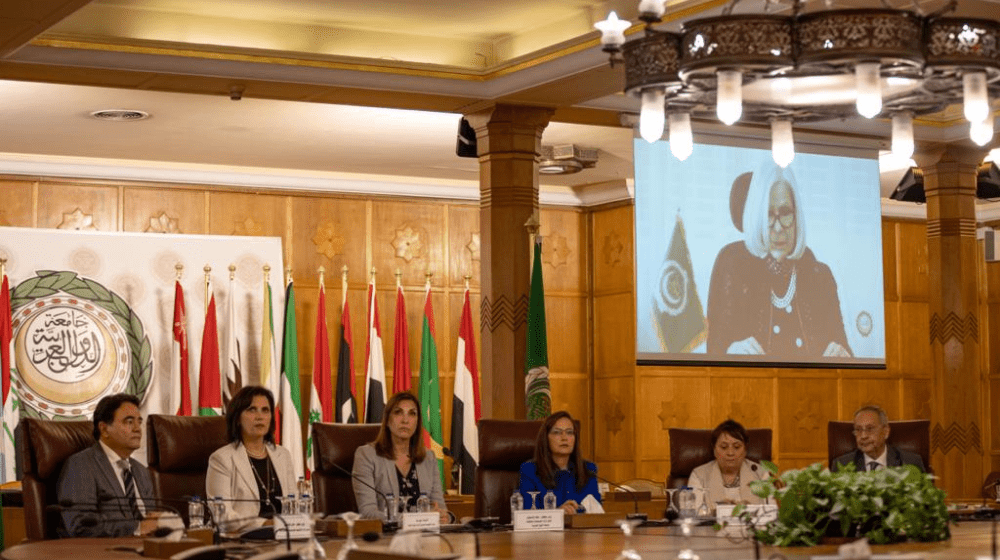The League of Arab States (LAS) and UNFPA Arab States Regional Office co-hosted the regional launch of the 2023 edition of the annual State of the World Population Report entitled ‘8 Billion Lives, Infinite Possibilities’. The regional launch event was also organized in partnership with the WHO Regional Office for the Eastern Mediterranean (WHO EMRO) at the League of Arab States premises in Cairo on 8 May. It included an expert panel discussion formed from academia, NGO, government representatives and researchers in different areas; demography and statistics, population policies, SRHRR, gender and human rights; and humanitarian.
Given the prominence of population concerns in our region, the regional launch was a unique opportunity to recall critical population and fundamental issues, not least the exaggerated fears and narratives about population explosion or shrinkage to help reshape the thinking of populations beyond numbers. It fostered the discussion around this year’s report's important topic from a regional perspective linking the narrative/findings of the report to the population policies in the Arab region, while highlighting the paradigm shifts needed to be considered in the region to address population and development issues in a more comprehensive way.
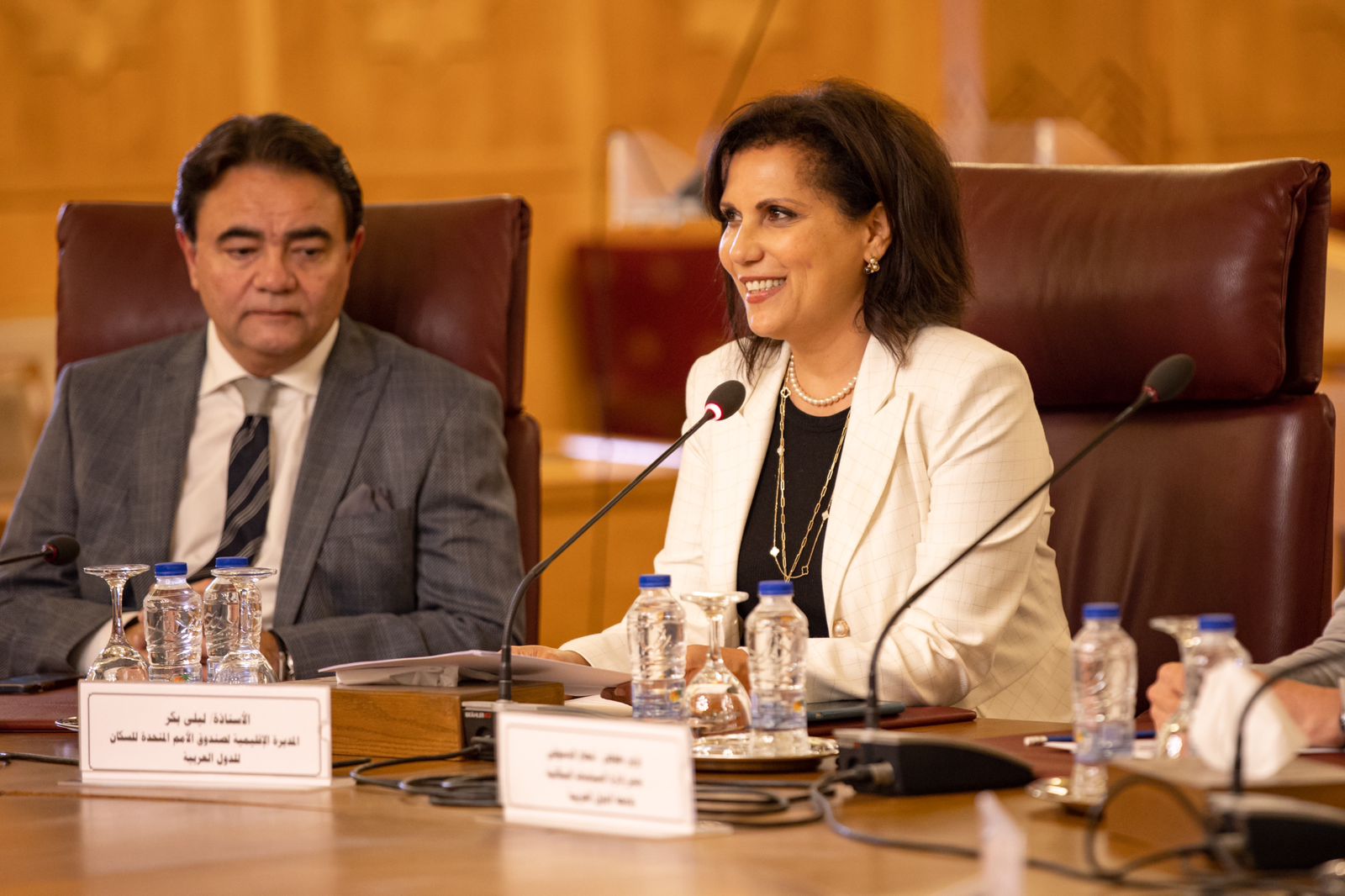
In her opening speech, Laila Baker, UNFPA Arab States Regional Director said, ”Speaking of ‘reducing’ or ‘increasing’ fertility rates, does not account for people’s rights to make their own reproductive choices, and it also fails to recognise the agency of individuals and their bodily autonomy.”
“We can avoid this misunderstanding by stating affirmatively that reproductive rights and bodily autonomy must be at the heart of any population or fertility policy.” she added.
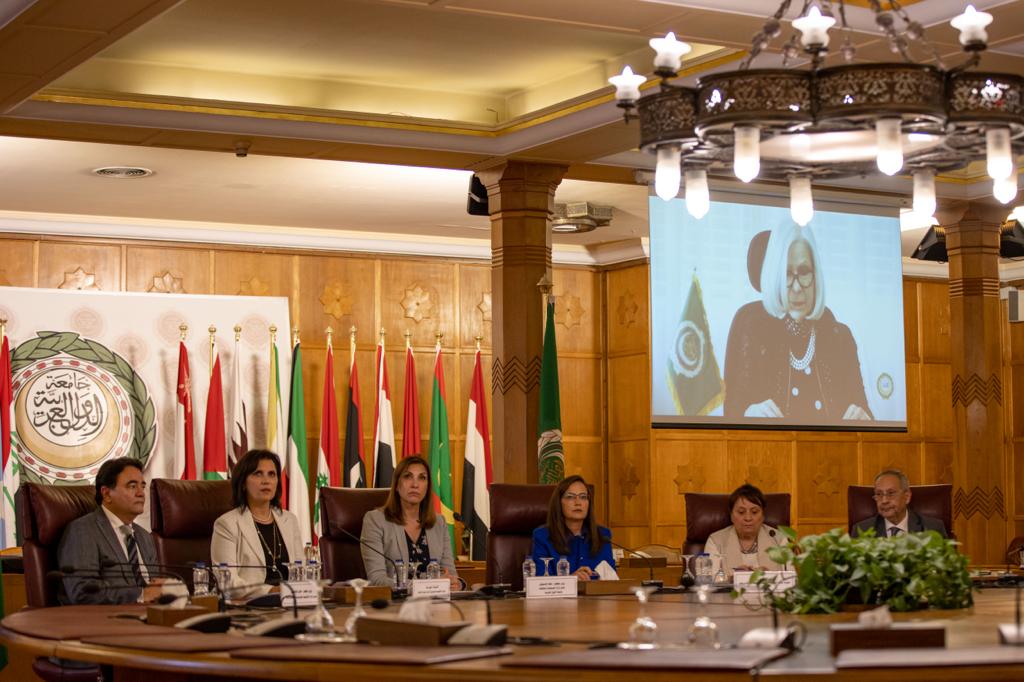
“We share a common mission with UNFPA, protecting and promoting human rights, leaving no one behind and reaching the furthest behind,” said H.E. Dr. Haifa Abu Ghazaleh, Assistant Secretary General, Head of Social Affairs sector at the League of Arab States in her opening remarks. “LAS has been keen to co-host the regional launch of the flagship State of World Population Report 2023, affirming its interest and commitment towards the ICPD agenda in the Arab region and the longstanding partnership with UNFPA.” she added.
“The population must be viewed and dealt with from a human rights perspective with a novel approach that puts people at its center. The perception about population is still confined to a demographic bomb or a demographic imbalance and the rights of individuals are still lost in the middle while population anxiety is on the rise, especially with the spread of wars and armed conflicts, fragile economies, climate changes, food and energy shortages, in addition to epidemics such as COVID-19.” Abu Ghazaleh said.
From his side Dr Ahmed Al Mandhari, WHO Regional Director for the Eastern Mediterranean stressed that diverse demographics require diverse solutions and approaches to address the health needs of all and ensure that no one is left behind. “WHO definition of ‘Health’ is a state of complete physical, mental and social well-being and not merely the absence of disease or infirmity. This means that our world can not only be measured solely in terms of population size, fertility rates, mortality and morbidity. We have to expand our understanding of how we measure the population beyond numbers.”
During the expert panel discussion the panelists offered different perspectives on issues relating to ageing populations, fertility rates, engaging young people in policymaking and how achieving gender equality can be a tool to tackle demographic challenges and global issues such as climate change.
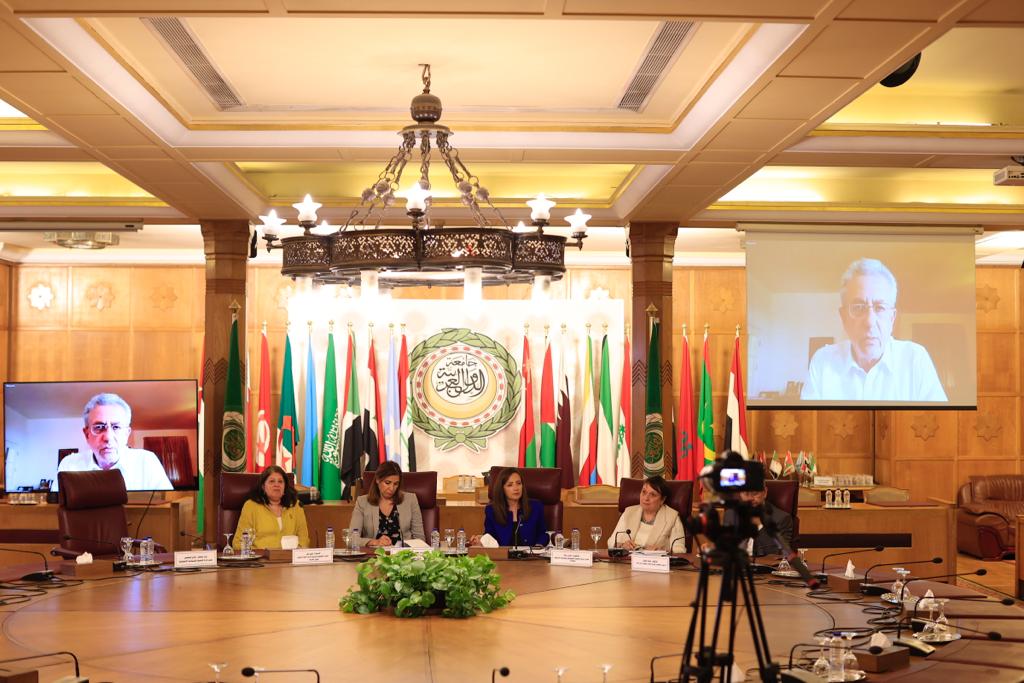
As part of the discussion, Mustafa Barghouti, the Founder and President of the Palestinian Medical Relief Society tackled the issue of external circumstances and pressures affecting both the population narrative and population policies as well as the implementation of the adopted policies. He also stressed on the importance of gender equality when discussing demographic issues. "Though there is support for the idea of women's rights, there is still a rejection of the idea of gender equality." he said.
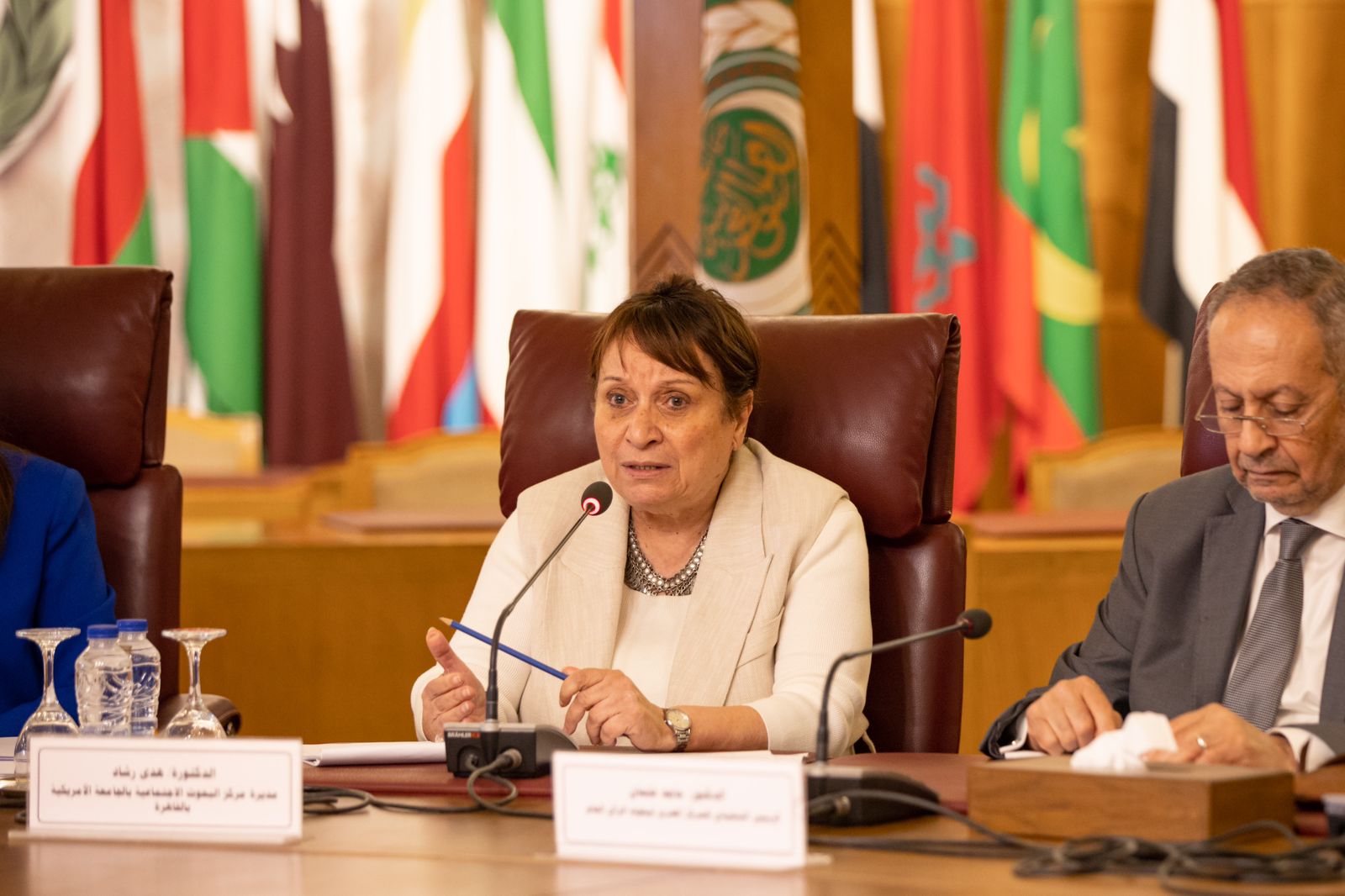
During this interactive and fruitful dialogue, Dr. Hoda Rashad, professor and director of the Social Research Center of The American University in Cairo (AUC) clarified how when human numbers are tallied and population milestones passed, the rights and potential of individuals can easily be overlooked "The State of World Population Report reminds us of the failure of population policies that were fixated on the numbers, trying to push people towards reproductive choices that they are not willing to make for themselves," she said highlighting how population policies have not only failed in the past but they also undermined the well-being of individuals and intruded on their human rights.
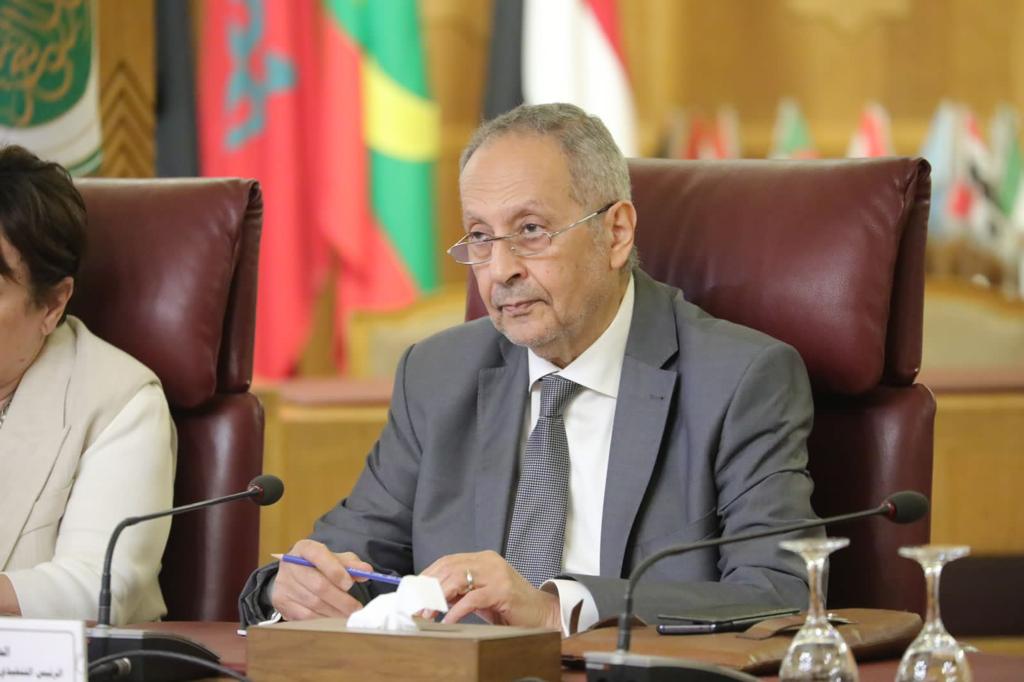
Dr. Maged Osman, the CEO of the Egyptian Center for Public Opinion Research (Baseera), spoke about the paradigm shifts needed to be considered in the Arab region to address population and development issues in a more comprehensive way, which led a constructive discussion and made a clear linkage between the report’s messages and the challenges facing the Arab region. In addition to the various factors that influence fertility rates, including why assumptions about a global replacement level fertility rate of 2.1 is misleading. He also spoke about a lack of access to health care being a huge barrier to fertility equality, and how inequality needs to be addressed if we want to tackle infertility.

